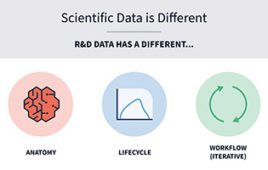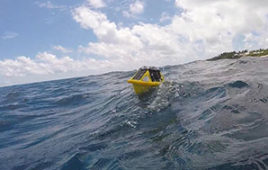 Cloud computing is not only the latest revolution in the Information and Communication Technology (ICT) world, but a key enhancer of innovation and economic development. Within the framework of the project CLOUDS, Madrid-based researchers have made crucial scientific advances in the state-of-the-art of cloud computing.
Cloud computing is not only the latest revolution in the Information and Communication Technology (ICT) world, but a key enhancer of innovation and economic development. Within the framework of the project CLOUDS, Madrid-based researchers have made crucial scientific advances in the state-of-the-art of cloud computing.
Cloud computing is an emerging paradigm for distributed computing systems whose goal is to offer software as a service over the Internet. The CLOUDS research project, in which IMDEA Networks has participated, has focused on advancing the state-of-the-art of this technology trend, one that is revolutionizing computing and the way in which users and network providers interact online. As everything Internet touches, this development is marked by the imprint of the globalization spirit. From the self-sufficient individual device that stores all data and contains all the applications required by the user, we are evolving toward an on-demand service model for computation, communication and information storage that dynamically adapts to variations in consumption and meets the needs of a global market.
The cloud allows the crossing of technological, geographical and administrative boundaries, concentrating information and services in data centers and devices that are remote but accessible online at any time, from anywhere and from almost any device or terminal. The level of autonomy, scalability, automation and flexibility this computing model provides is unprecedented. Technological resources are distributed globally, and the information is stored on Internet servers, freeing the user from the traditional dependence of the device, enhancing mobility, accessibility and security, and allowing until recently unthinkable access to next-generation services via payment for consumption, that is, without a substantial prior economic investment.
The effect of this model in the democratization of access to knowledge and resources is as palpable in the business world as in the end user’s. For example, SMEs can compete technologically, optimizing the use of ICT resources and making a minimal investment, to scale; while the user experiences how to the immeasurable range of information is now added the possibility of using specialized tools, updated and new, accessing public and private services or using collaborative applications, simply with the aid of a Web browser.
Research on cloud computing poses challenges and promises advances that go beyond what is covered by the CLOUDS project. Indeed, its potential applications impact various areas that have in common a high degree of innovation. From cellular telephony (HLRs, fraud detection, real time processing of CDRs), banking and finance (detecting fraudulent card payments and money laundering), business intelligence (real time data warehousing and scalable targeted advertising), safety (mitigation of denial-of-service attacks, processing systems security events), sensor networks (processing output of massive sensor networks) to domotics (smart buildings), to name but a few.
The CLOUDS (Cloud Computing for Scalable, Reliable and Ubiquitous Services) project has been financed by the Department of Education, Youth and Sports of the Regional Government of Madrid and was in operation from January 2010 to May 2014. Researchers at IMDEA Networks Institute collaborated with research groups from two Madrid universities, the Polytechnic University of Madrid and the University Rey Juan Carlos.
More Info:




